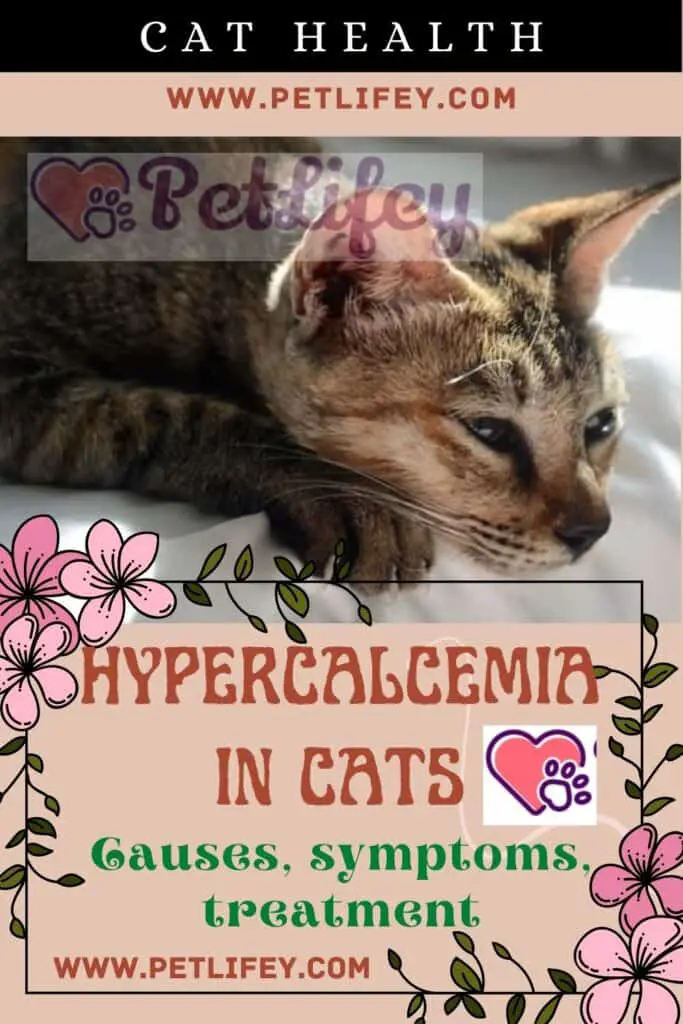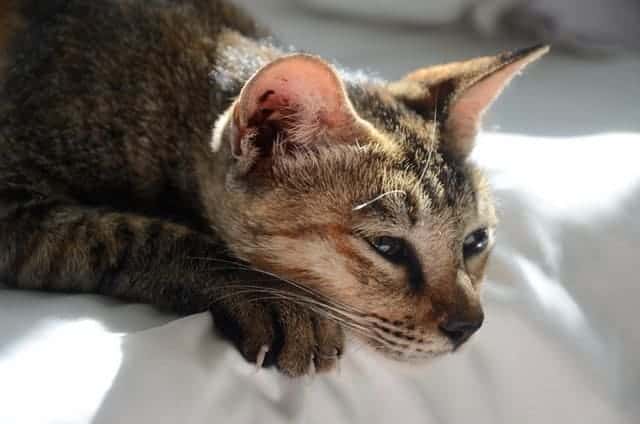Hypercalcemia in cats, a very serious disease which can be affected. Let’s see what can be the triggering causes, the typical symptoms and the expected cure for the cat.

As with dog friends, the feline can also be subject to problems related to substances and minerals present in the blood. Alterations and unbalanced values of these elements can cause dangerous damage to organs and, in general, to the organism of the pet. Let’s see, here, what hypercalcemia in cats is and how it can be treated.
Hypercalcemia in cats: typical causes and symptoms
We are talking about a rather rare pathology in the feline but that it is necessary to know in order to be able to deal with it without errors. Hypercalcemia may not manifest any symptoms or, instead, develop in a highly dangerous way for the animal. Let’s see, below, the main causes and typical symptoms of the disease.
Your pet feline can go through phases or times when they feel exhausted, weak and with little enthusiasm for their daily activities.
Often, these difficult moments are only passing and the cat returns lively and serene as before. At other times, however, it may be something more serious in the furry one that needs a thorough investigation .
The cat can undergo an increase in calcium values in the blood, outside its physiological range. This condition is called hypercalcemia.
Although it is very rare in cats, the disease can develop as a result of previous illnesses or disorders present in the cat, of which we were not aware. Here are the possible causes of hypercalcemia in cats.
Among the main triggering causes, there are electrolyte imbalances , as a consequence of the high reabsorption of calcium in the bones or kidneys; Also the excessive resorption from the intestine may submit the disorder, due to too rich food portions.
Other causes of feline hypercalcemia are the following:
- Kidney failure in cats
- Dehydration
- The cat is very young
- Hyperparathyroidism
- Meals too abundant
- Hypervitaminosis D in cats
- Addison’s disease
- Osteomyelitis
- Lipemia
- Excessive calcium supplementation in the diet
- Too many phosphate binders
- Hypertrophic osteodystrophy
- Prostate cancer
- Breast tumors in cats
- Cat lymphoma
Typical symptoms of the disease
The person suffering from hypercalcemia may not show any symptoms or develop the disease in a very serious way .
We must know that the symptoms tend to appear when the calcium level reaches a level above 14 mg / dl. So, the main symptoms in the furry are:
- Weakness
- He retched
- Constipation in cats
- Anorexia
- Fast heart beat in cats
- Polydipsia
- Polyuria
- Convulsions of the cat
The feline and its pathology: diagnosis and therapy

In the presence of one or more symptoms in the feline, it will be necessary to carry out all the necessary tests for the diagnosis of the disease and to understand what was the triggering cause. Let’s read, later, what are the tests planned for the cat and what is the right treatment for its situation.
As we mentioned, if you notice any changes and health problems in your cat, you need to consult with your veterinarian to find the best solution.
Through the blood test and other tests, it is possible to verify the presence of hypercalcemia. Based on the type of hypercalcemia (with normal or low phosphates ) one can orient towards one or the other cause among those listed above.
It is foreseen the administration of glucocorticoids, only if it decides the doctor and there is a suspicion lymphoma, together with a power supply to low content of calcium, also taking into account the pH of the urine of the animal affected.
The cure for the cat consists, in practice, in rebalancing the calcemia, correcting it to more normal values through the drip and stimulating its diuresis with the use of various diuretics.






